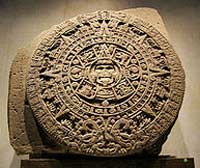The complaints about cultural appropriation by the polyamory community that I talked about in my last blog post got me to thinking about a different kind of appropriation. It often takes place in the same places and the same contexts as cultural appropriation, and a lot of the same people do it, but it’s a very different animal.
I’m talking about science appropriation.
Science appropriation is what happens when someone uses a garbled, factually incorrect, and/or completely unintelligble statement about science in an attempt to justify or rationalize something that has nothing to do with science at all.
This isn’t directly relevant to polyamory, except insofar as there are some folks (particularly in the New Age crowd) who are polyamorous and do it. I’ve also seen it in religious groups, in alternative “medicine” communities…hell, even among conspiracy theorists.
Science appropriation typically goes something like this: A person with little or no formal background in science wants to believe something. What he wants to believe isn’t especially important. Maybe he wants to believe that fluoridated water is a secret conspiracy of shadowy government agencies trying to control us with mind control drugs, or that diseases can be cured by the waving of hands and the application of spiritual energy, or that benign beings from another dimension want to make us all better people, or that after we die things become wonderful forever. Whatever it is, the person attempts to support the belief with a bizarre and often nonsensical application of some poory-understood scientific principle, or at least sciencey-sounding words like “quantum” or “frequency” or “DNA.” The result makes a hash of science, and in the few cases where the belief might have some kernel of validity, completely obfuscates its validity under a blizzard of intellectual rubbish.
This plays out in practice in a number of ways, and often involves other forms of appropriation as well.
Take this Web site. Please.
It talks about raising our “spiritual awareness” to a higher plane by using the powers of the twelve chakras, possibly related in some manner I’m not entirely clear on to the pyramids, to activate the hidden powers in our DNA.
In addition to a staggering amount of cultural appropriation (I’m not sure the authors of this stuff are even aware that the idea of chakras comes from an entirely different culture than the one that gave us the pyramids), the level of science appropriation reaches nosebleed proportions. For example (I can not make this up):
Most people know that DNA is the ‘blueprint of life’ and is located in every cell of the body. In addition to each chromosome’s 2 strand double helix of DNA, there are an additional 10 etheric strands of DNA available to each human, which have been de-activated and dormant since the beginning of recorded history. Each additional strand possesses attributes that permit the individual to perform greater human accomplishments. Scientists acknowledge that we currently only use 3% of our current 2 strand DNA. Thus we live in a society where people are sick, unhappy, stressed out, create wars, have difficulty experiencing love, and are totally disconnected with the universe. Most people have to meditate for many years just to have a so-called ‘mystical’ experience, that’s how disconnected we are now. Imagine activating 100% of your 2 strand DNA, PLUS 10 additional strands! You will go from using 10% of your brain to becoming a multi-dimensional being with psychic, telepathic, and manifestation abilities beyond anything you’ve ever dreamed of. Plus, you will stop the aging process and actually start to rejuvenate to look and feel YOUNGER. […] The portions of the DNA chain that science has presently identified as the “Double Helix”, represent only the SURFACE portions of the chemical, elemental, and electrical components of the active DNA strands. Science has yet to identify the MULTIDIMENSIONAL spectra of DNA manifestation, and has yet to realize that within the structures of detectable DNA, there are levels of structure and function that direct the operations of the entire genetic blueprint, which are not currently detectable by the contemporary scientific method.
This quote hits pretty much all the hallmarks of science appropriation.
First, there’s the garbled misunderstanding of science facts. Science says that a small percentage of the human genome is made up of “coding DNA”–the percentage is actually closer to 20% than to 3%, but never mind–which is DNA that directs the cell to make proteins. However, that doesn’t mean the rest is inactive! Non-coding DNA is involved in many functions: activation and deactivation (usually through epigenetic methylation) of protein-coding sequences of DNA; coding for strands of RNA that affect the translation of messenger RNA into proteins; and more. Many areas of non-coding DNA aren’t well understood but are highly conserved, indicating that they play an active and essential role in biology.
Then there’s the faux pop-sci mythology that we only use 10% of our brains, a nonsensical superstition remarkably resilient to the light of disproof. This and other popular science superstitions (like the notion that science says bumblebees can’t fly) are common in science appropriation.
And then there’s the hint of secret knowledge–information beyond what science can see, or facts that transcend the current state of knowledge–that’s part and parcel of science appropriation.
And finally, there’s the bizarre, anti-intellectual hatred of science and the scientific method that almost always accompanies sience appropriation. The folks who appropriate scientific-sounding language and ideas for unscientific or pseudoscientific notions seem to have a love-hate relationship with science; on the one hand, they speak with derision and contempt about the scientific method, but on the other, they seem eager–even desperate–for the validation of science.
In fact, about the only thing missing from this particular example is the word “quantum,” which as near as I can tell is what science appropriators use when they mean “magic.”
A great deal of science appropriation comes from folks who seem to genuinely want to make the world a better place, but don’t want to invest in the tools to do it because making the world a better place is often very hard work. Folks who want to be healers but who don’t want to get a medical degree or invest the serious amunt of time and money it takes to understand biology are big offenders here. There’s a Web site (and, I gather, a set of beliefs) called Healing Heart Power that’s a great example of science appropriation:
The heart’s electrical field is about 60 times greater in amplitude than the electrical activity generated by the brain.
The magnetic field produced by the heart is more than 5000 times greater in strength than the field generated by the brain
The electromagnetic energy of the heart not only envelops every cell of the human body, but also extends out in all directions in the space around us […]
Research conducted at the Institute of HeartMath suggests that the heart’s field is an important carrier of information.
Our mental and emotional state impacts the quality of contact we offer to another person. When we touch one another with safe, respectful, loving intention both physically and emotionally, we call into play the full healing power of the heart. The greater the “coherence”–a sense that life is comprehensible, manageable and meaningful– one develops, the more sensitive one becomes to the subtle electromagnetic signals communicated by those around them. […]
Heartpower and our genetic make-up: Dorothy Mandel writes, “Genetically, cells adapt to what they perceive their environment to be. Because an event experienced in the midst of a heart response will be perceived and interpreted very differently than an event experienced in the midst of a stress response, the heart can also powerfully affect genetic expression”
Becoming more heart aware and working towards authentic emotional expression and inner peace may positively impact our genetic health.
Anyone who has any backgrund in biology at all is probably cringing and eyerolling right now. The notion that human beings benefit from positive interaction with one another is pretty straightforward, but here it’s dressed up with a level of science appropriation that’s almost physically painful to read.
We see unsourced, vaguely-defined claims about the heart’s electrical and electromagnetic field that are remarkably content-free (what units are we talking about? What’s the absolute strength of these fields?) and that we are expected to infer are important. (If it’s significant that the heart’s electromagnetic field is stronger than the brain’s, what are we to infer from the fact that the bicep’s electromagnetic field is also stronger than the brain’s?) The biological basis for these claims is not presented (I would reasonably expect the brain to have a weak electromagnetic field, as the activity in it is electrochemical rather than electromagnetic!), yet the claims are used to try to support other claims, such as the heart’s electromagnetic field being a “carrier of information” (what information? in what form? From where to where?).
This particular Web page does do one thing that a lot of science appropriators don’t do, though, which is to make a falsifiable prediction (“the heart can also powerfully affect genetic expression”). Unfortunately for the creators of healing heart power, this prediction doesn’t have any evidence at all to support it.
That does bring up an important distinction between science and science appropriation, though. People who appropriate science for non-scientific or pseudoscientific ends don’t actually know what science is.
Science isn’t a body of knowledge. Science isn’t a collection of facts or books. The Theory of Relativity isn’t science; nor is Western medicine or the Hubble Space Telescope.
These things are the products of science. Science itself is a process, not a library of theorems. It’s a way of looking at the world. It’s a carefully designed system for figuring out what’s true and what’s false that s founded on a simple idea:
Human beings suck at separating truth from falsehood. When we want to believe something, we will find ways to fool or trick ourselves into believing it, even if we’re not consciously aware that’s what we’re doing. Therefore, actually separating what’s true from what we want to be true means systematically dealing with our own cognitive shortcomings, confirmation biases, and predilection for fooling ourselves.
Science insists on falsifiability because without it we tend to persuade ourselves that anything we want to believe is true. We learn about the Scientific Method in school (at least if we got anything even remotely approximating a decent education), but the version we learn in school is dry and not very illuminating. The scientific method, put more plainly, looks something like this:
- You are not as smart as you think you are.
- If you want to believe something, you’ll find a way to make yourself believe it.
- If you think you are rational, you’re probably good at making yourself believe what you want to believe.
- You are gullible.
- If you think you’re not gullible, you’re really, really gullible.
- If you want to know what’s true, you shouldn’t believe things without reason.
- “I really, really want it to be true” isn’t a reason.
- An anecdote isn’t a reason.
- Your feelings aren’t a reason.
- Feelings can lie to you.
- Your emotional self isn’t very good at fact-checking.
- Reality doesn’t care very much about what you think.
- Reality is really, really complicated.
- Reality doesn’t give a hairy flying fartknuckle about politics.
- Reality isn’t human-centric.
- If a person in New York and a person in Tehran both measure the universal gravitational constant, the result better be the same.
- If you get different results when the “negative energy” of “unbelievers” spoils the experiment, your results aren’t worth a fetid dingo’s kidney.
- if you want to understand how the universe works, you have a lot of work to do.
- The universe doesn’t fit human stories.
- Storytelling isn’t science.
- If it can’t be quantified, it isn’t science.
- If you can’t figure out a way to test whether an idea is wrong, it isn’t a scientific idea.
- The best way to see if an idea holds any water is to try to prove it wrong, not try to prove it right.
- Your own tendency toward confirmation bias will lead you to see evidence that your ideas are true even when it isn’t really there.
- The universe doesn’t fit human stories.
- Sometimes, the answer to a question is “we don’t know,” and that’s okay.
The things I’ve talked about so far are all examples of pseudoscience, so it might seem like sciece appropriation is simply another expression for pseudoscience.
All pseudoscience is sciene appropriation, but not all science appropriation is pseudoscience. Science appropriation also happens when something that isn’t science claims that its principles have been “scientifically proven,” something that happens often in the world of religion.
My sweetie Eve has remarked about how Westerners are quick to appropriate elemets of Indian culture, what with Tantra this and chakra that and having sex is all about spirituality, really it is, I’m being so sincere right now. But when she was in India, she saw the same thing happening in reverse; Indian mystics ad religious people often tried to claim scientific legitimacy for their religious practices, saying that science has “proven” beliefs such as cutting one’s hair is wrong.
When I was working prepress for a living, one of my clients was a book publisher that specialized in supplying books to Christian bookstores. Every year I worked on their catalog, which had an entire section devoted to books that claimed to show how science “proves” that Christianity is the true religion or that Jesus was the son of god or something.
I don’t think of these examles as pseudoscience. Pseudoscience is when something claims to be a science but isn’t, like phrenology or DNA activation or dowsing. The Christians who claim that science supports the divinity of Jesus or the Sikhs who say that refusing to cut their hair is scientifically proven to be beneficial aren’t saying that Christianity or Sikhism is a science; they’re appropriatng the respectability of science to try to support an idea that at its core has nothing to do with science. To me, that’s a it different from prenology and similar systems that claim to be scientific fields but aren’t.
There are overlaps, of course. Creation “science” is a religious belief that’s also a pseudoscience. Sometimes the boundaries get fuzzy. That doesn’t change the fact that some folks claim scientific legitimacy for a belief without saying the belief itself is a science.
Science appropriation also happens in pop culture. An astonishing number of people believe that humans only use 10% of our brains, that the left brain is rational and the right brain is creative, or if you rescue a baby bird that’s fallen from its nest you shouldn’t return it to the nest or its mother will reject it. None of these ideas has any basis in science, but they’re incredibly, annoyingly persistent and many people pass them off as science fact.
Science appropriation is more than annoying; it’s harmful. We live in a technological, post-industrial society with a public school infrastructure that is crap at teaching basic science. Thanks to that, we’ve created a society uniquely vulnerable to science appropriation. When a person with diabetes uses homeopathic “treatment,” the diabetes goes untreated. When someone spends time and money on “DNA activation” in the hopes that it will let her unlock the other 90% of her brain (whatever that means; ae these folks saying that someone with a 110 IQ will have a 1,100 IQ after DNA activation?), she gets fleeced by a scam. The fact that the scammer might also believe the scam dooesn’t make it any less of a scam; it simply means the educational system has failed the scammer, too. Public policy decisions based on science apropriation have the potential to harm lots of people.
So, as part of my own personal crusade to make the world a better place, I’ve created this handy-dandy Science Appropriation Bingo card. Keep it with you when you read New Age Web sites or browse the alternative healing section of WebMD. If you want to print it out, clicky on the picture for a link to a PDF version!


 In less than three weeks, the end of the world will happen.
In less than three weeks, the end of the world will happen.
 Most of us, I suspect, aren’t really equipped to deal with the notion that everything we believe is important will probably turn out not to be. If we were to find ourselves transported a thousand, two thousand, ten thousand years from now, assuming human beings still exist, they will no doubt be very alien to us–as alien as Chicago would be to an ancient Sumerian.
Most of us, I suspect, aren’t really equipped to deal with the notion that everything we believe is important will probably turn out not to be. If we were to find ourselves transported a thousand, two thousand, ten thousand years from now, assuming human beings still exist, they will no doubt be very alien to us–as alien as Chicago would be to an ancient Sumerian. This is Malala Yousafzai. As most folks are by now aware, she is a 14-year-old Pakistani girl who was shot in the head by the Taliban for the crime of saying that girls should get an education. Her shooting prompted an enormous backlash worldwide, including–in no small measure of irony–among American politicians who belong to the same political party as legislators who say that
This is Malala Yousafzai. As most folks are by now aware, she is a 14-year-old Pakistani girl who was shot in the head by the Taliban for the crime of saying that girls should get an education. Her shooting prompted an enormous backlash worldwide, including–in no small measure of irony–among American politicians who belong to the same political party as legislators who say that 

 Writers like Sam Harris and Michael Shermer talk about how people in a pluralistic society can not really accept and live by the tenets of, say, the Bible, no matter how Bible-believing they consider themselves to be. The Bible advocates slavery, and executing women for not being virgins on their wedding night, and destroying any town where prophets call upon the citizens to turn away from God; these are behaviors which you simply can’t do in an industrialized, pluralistic society. So the members of modern, industrialized societies–even the ones who call themselves “fundamentalists” and who say things like “the Bible is the literal word of God”–don’t really act as though they believe these things are true. They don’t execute their wives or sell their daughters into slavery. The memes are not as effective at modifying the hosts as they used to be; they have become less virulent.
Writers like Sam Harris and Michael Shermer talk about how people in a pluralistic society can not really accept and live by the tenets of, say, the Bible, no matter how Bible-believing they consider themselves to be. The Bible advocates slavery, and executing women for not being virgins on their wedding night, and destroying any town where prophets call upon the citizens to turn away from God; these are behaviors which you simply can’t do in an industrialized, pluralistic society. So the members of modern, industrialized societies–even the ones who call themselves “fundamentalists” and who say things like “the Bible is the literal word of God”–don’t really act as though they believe these things are true. They don’t execute their wives or sell their daughters into slavery. The memes are not as effective at modifying the hosts as they used to be; they have become less virulent. If you live in the US, odds are pretty good that anyone who wants to talk morality with you is actually talking about sex. How to do it, where to do it, when to do it, in what position to do it, who to do it with…the term “morals,” especially in political discourse, has come to be a synonym for “sex.”
If you live in the US, odds are pretty good that anyone who wants to talk morality with you is actually talking about sex. How to do it, where to do it, when to do it, in what position to do it, who to do it with…the term “morals,” especially in political discourse, has come to be a synonym for “sex.”  Take Pat Robertson.
Take Pat Robertson.  When this image dominates the public dialog about morality, someone is being snookered.
When this image dominates the public dialog about morality, someone is being snookered. But the media attention about Chick-Fil-A and gay marriage got me to thinking. Most self-described Christian conservatives base their opposition to gay marriage on two Bible verses. Leviticus 18:22 reads:
But the media attention about Chick-Fil-A and gay marriage got me to thinking. Most self-described Christian conservatives base their opposition to gay marriage on two Bible verses. Leviticus 18:22 reads:

 The Culture novels are interesting to me because they are imagination writ large. Conventional science fiction, whether it’s the cyberpunk dystopia of William Gibson or the bland, banal sterility of (God help us) Star Trek, imagines a world that’s quite recognizable to us….or at least to those of us who are white 20th-century Westerners. (It’s always bugged me that the alien races in Star Trek are not really very alien at all; they are more like conventional middle-class white Americans than even, say, Japanese society is, and way less alien than the Serra do Sol tribe of the Amazon basin.) They imagine a future that’s pretty much the same as the present, only more so; “Bones” McCoy, a physician, talks about how death at the ripe old age of 80 is part of Nature’s plan, as he rides around in a spaceship made by welding plates of steel together.
The Culture novels are interesting to me because they are imagination writ large. Conventional science fiction, whether it’s the cyberpunk dystopia of William Gibson or the bland, banal sterility of (God help us) Star Trek, imagines a world that’s quite recognizable to us….or at least to those of us who are white 20th-century Westerners. (It’s always bugged me that the alien races in Star Trek are not really very alien at all; they are more like conventional middle-class white Americans than even, say, Japanese society is, and way less alien than the Serra do Sol tribe of the Amazon basin.) They imagine a future that’s pretty much the same as the present, only more so; “Bones” McCoy, a physician, talks about how death at the ripe old age of 80 is part of Nature’s plan, as he rides around in a spaceship made by welding plates of steel together.
 But I wonder…would a post-scarcity society necessarily be Utopian?
But I wonder…would a post-scarcity society necessarily be Utopian? One such society might be the Aztec empire, which spread through the central parts of modern-day Mexico during the 14th century. The Aztecs were technologically sophisticated and built a sprawling empire based on a combination of trade, military might, and tribute.
One such society might be the Aztec empire, which spread through the central parts of modern-day Mexico during the 14th century. The Aztecs were technologically sophisticated and built a sprawling empire based on a combination of trade, military might, and tribute. Here in the States, we have a couple of these bizarre nuggets of superstitious moose dung, sitting buried deep within the veneer of civilization surrounding us.
Here in the States, we have a couple of these bizarre nuggets of superstitious moose dung, sitting buried deep within the veneer of civilization surrounding us.
 Exodus International, in case you have been fortunate enough to avoid these lunkheads so far, is a right-wing Christian organization founded on the premise that through prayer and “spiritual healing” (whatever that is), they can cure people of homosexuality and turn them into nice, normal, inoffensive heterosexuals.
Exodus International, in case you have been fortunate enough to avoid these lunkheads so far, is a right-wing Christian organization founded on the premise that through prayer and “spiritual healing” (whatever that is), they can cure people of homosexuality and turn them into nice, normal, inoffensive heterosexuals. But first, before I go into why, let me explain something about how the app got approved in the first place. Some noisy but uninformed folks have spouted a lot of nonsense about how Bad And Wrong Apple was to have approved the app in the first place, pointing to how its “unoffensive” rating within Apple’s system showed that Apple is an anti-gay, right-wing establishment.
But first, before I go into why, let me explain something about how the app got approved in the first place. Some noisy but uninformed folks have spouted a lot of nonsense about how Bad And Wrong Apple was to have approved the app in the first place, pointing to how its “unoffensive” rating within Apple’s system showed that Apple is an anti-gay, right-wing establishment.
 When I first became aware of the Exodus app, I had read about it on Web sites run by pro-GLBT activists and bloggers. I came away with the notion that the app was a how-to guide for “curing” gays. It wasn’t until I started looking at screen shots and app descriptions–by the time I found out about it, the app had already been removed from the App Store–that I learned its content was considerably different from what I’d been lead to believe.
When I first became aware of the Exodus app, I had read about it on Web sites run by pro-GLBT activists and bloggers. I came away with the notion that the app was a how-to guide for “curing” gays. It wasn’t until I started looking at screen shots and app descriptions–by the time I found out about it, the app had already been removed from the App Store–that I learned its content was considerably different from what I’d been lead to believe. On another forum I read, a lot of folks were hailing the removal of the app from the App Store as a triumph of Libertarianism. I found that notion pretty weird; Apple acts as an absolute regulator of the App Store, with the ability to enforce any rules it chooses about what may and may not be found there.
On another forum I read, a lot of folks were hailing the removal of the app from the App Store as a triumph of Libertarianism. I found that notion pretty weird; Apple acts as an absolute regulator of the App Store, with the ability to enforce any rules it chooses about what may and may not be found there.